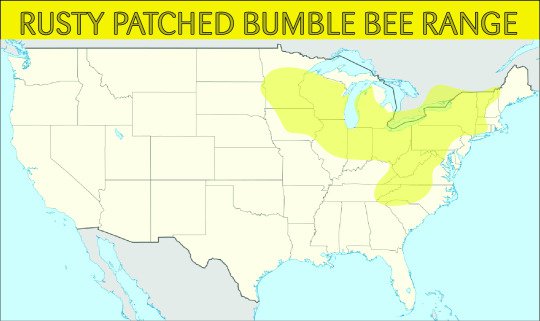Question Your World: Why Are Bees an Endangered Species?
For the last few years, we’ve been hearing about the decline of bees. Now, in the first week of 2017, the rusty patched bumblebee has officially been designated as an endangered species. To dig a little deeper, let’s see what’s putting the sting on our bees. Why are bees an endangered species?
First of all, this is not a first-of-a-kind news headline. Unfortunately, seven other bee species have already been added to the endangered list, but all of them reside in Hawaii. The rusty patched bumblebee made news by being the first species of bee in the lower 48 states to be placed on the endangered list. So, what’s going on here? Why all the buzz over these bees?
Keep in mind that our planet’s ecosystem has evolved over millions of years to reach a natural state of balance. Every member of the ecosystem has a role in maintaining a somewhat ideal balance for life as we know it. Bees do their fair share of the work for the ecosystems, but also for our direct use. These bees are natural pollinators. In fact, they provide humanity with nearly $9 billion worth of ecosystem services. Native pollinators, like these bees, enable and support the production of at least 90 different commercial crops here in the United States. Globally, this means that 35% of the food that we produce is dependent on pollinators. In other words, if these pollinators were a country, they would rank among the top 100 economies on the planet! That’s a lot of work for an animal that does not get a pay raise or any insurance coverage.
This, of course, did not happen overnight. The designation of this mainland US bee onto the endangered list was a slow build over time. Many other species have felt the influence of human goings-on and have reacted by migrating to safer land. These bees however did not do such a thing. Instead they stuck around and just started to disappear. To better understand this change, scientists looked at over a century’s worth of bee activity. They studied our land use changes, the way we have added pesticides to our crops, and how burning fossil fuels have altered climate trends.

After the research was concluded, the answer seemed to become very clear. The only variable that has had a meaningful impact in drastically lessening the population was the rapidly changing climate. Our bees just can’t keep up with the warming taking place in their habitats.
Like many of the other issues facing our nation, this too will require collective action. Scientists are suggesting ways for us to get involved and help our bees in this time of urgency. They’re suggesting ways for us to help, like building solitary bee colonies for your garden and planting native flowers at our homes and businesses.